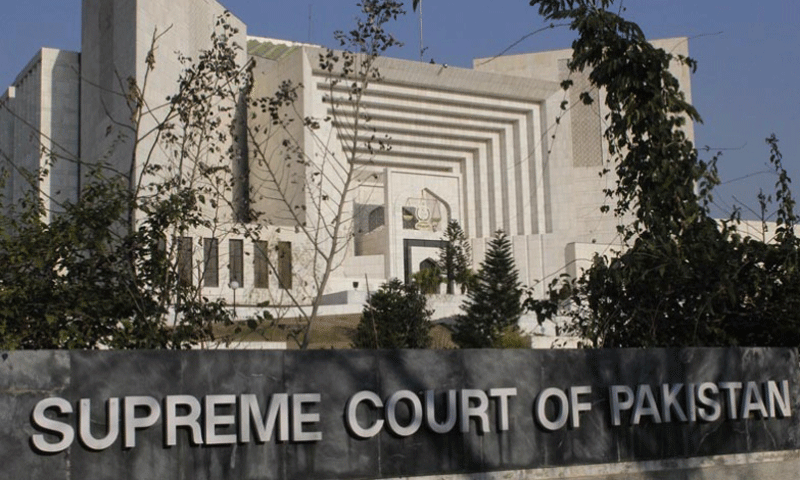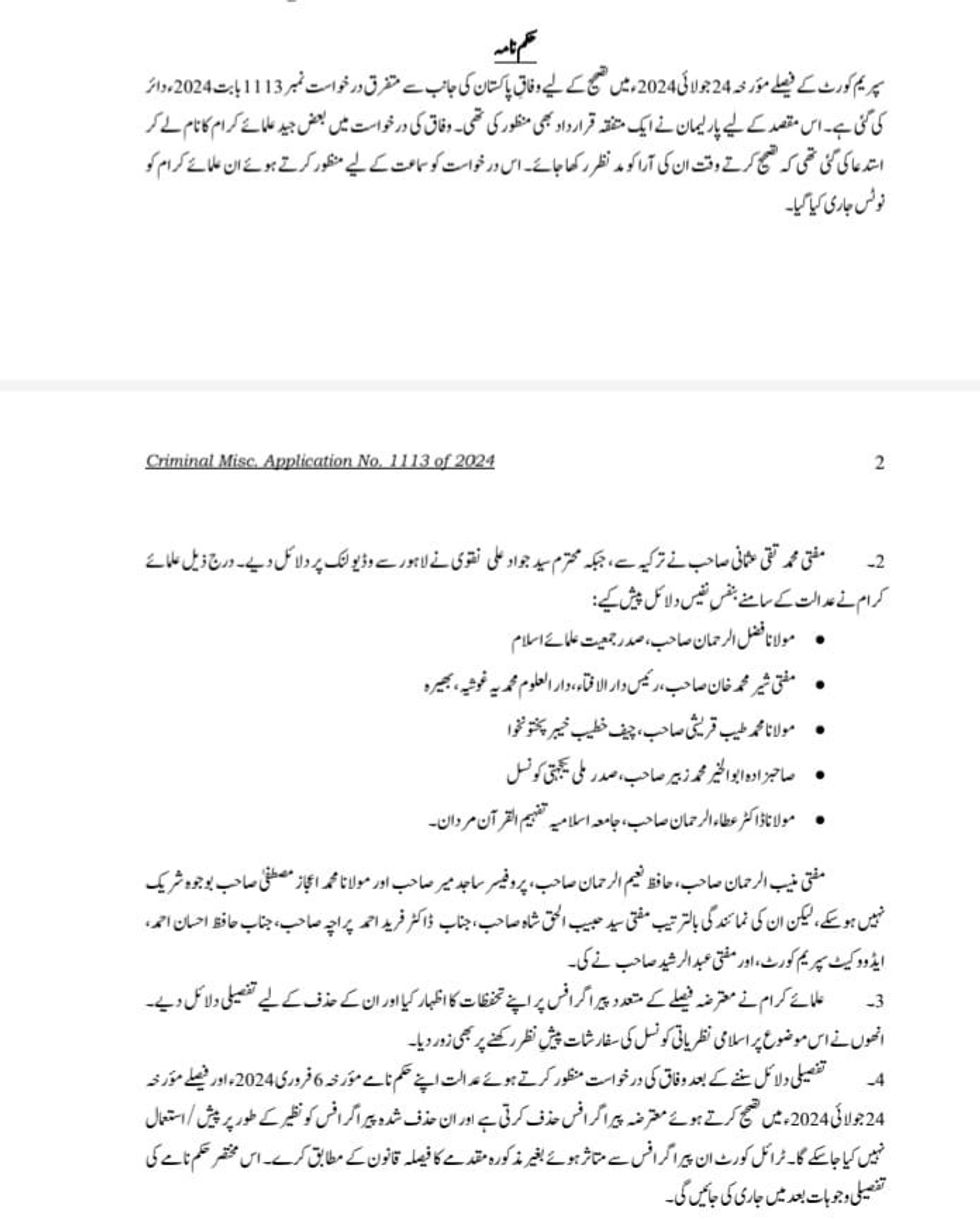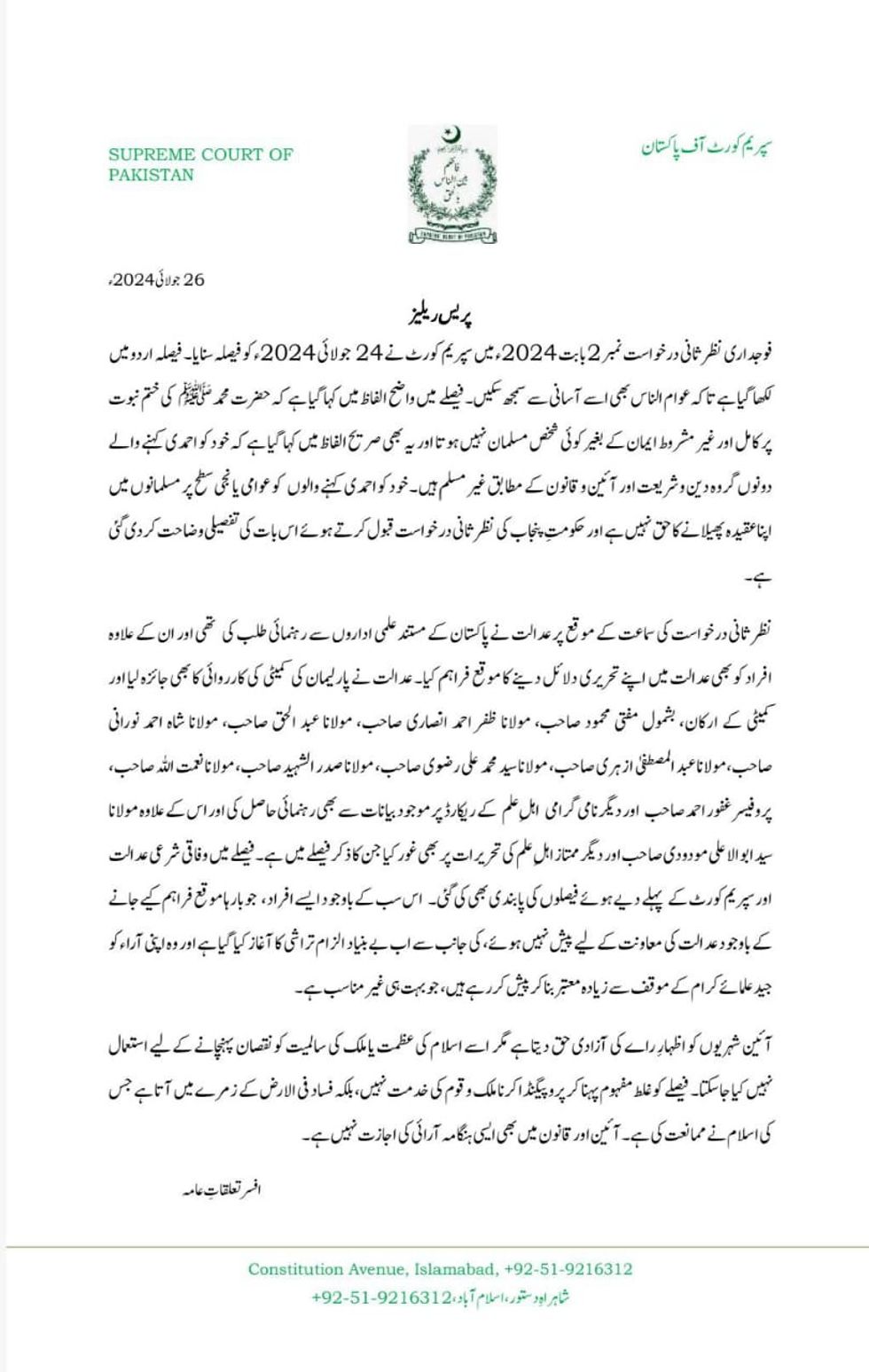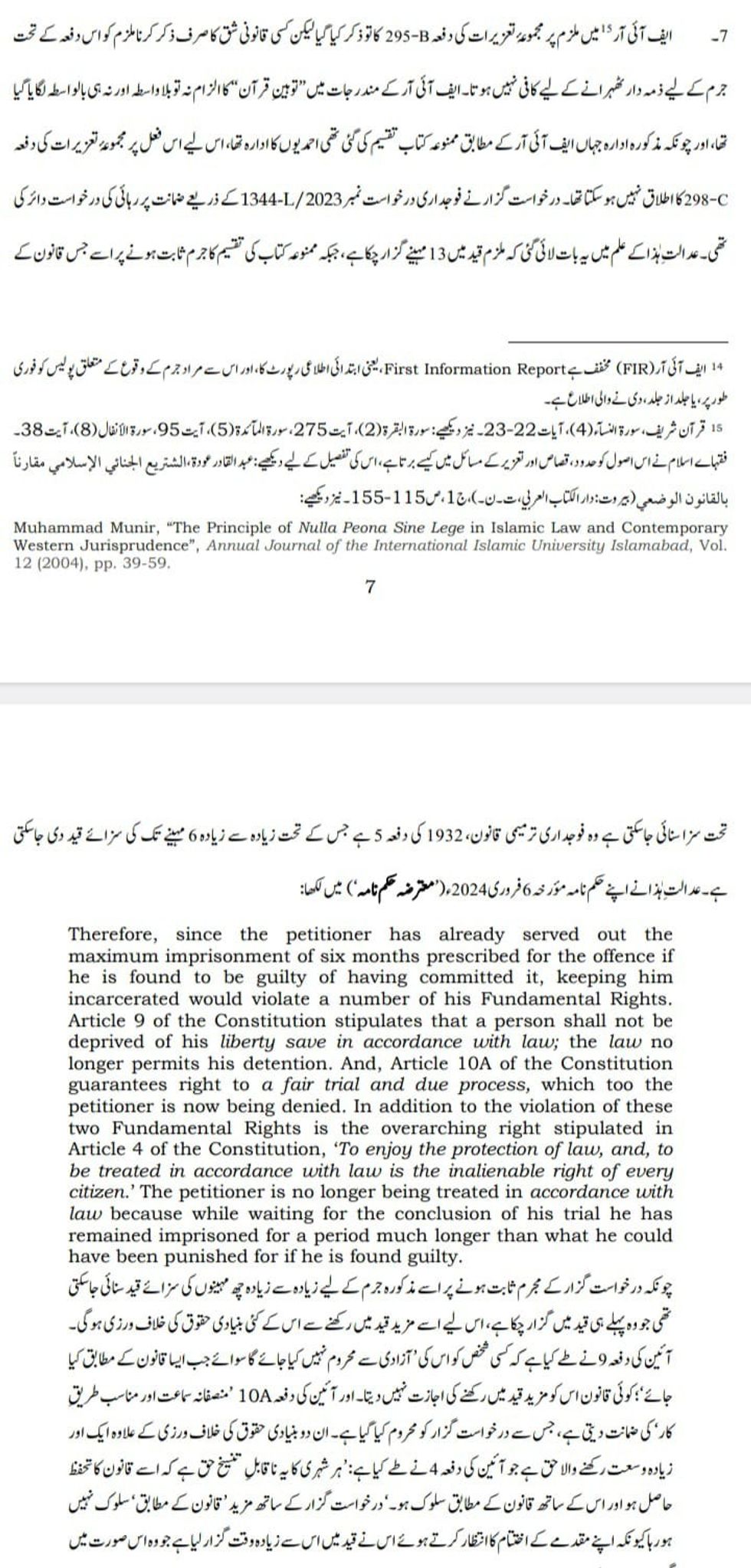Pakistan’s SC removes disputed paras on Ahmaddiya rights amid backlash
Expunction comes in consultation with country’s top religious scholars

Wahid Ashraf

Supreme Court Of Pkaistan
Courtesy: AFP
Lawyers divided over decision as religious scholars celebrate
SC lawyer says two reviews in one case unprecedented
The Supreme Court (SC) of Pakistan has expunged from an earlier order controversial paragraphs concerning the Ahmaddiya community’s right to privately practice and preach their religion.
The expunction came in consultation with the country’s top religious scholars after they objected to the court’s initial order. The court clarified that the excluded paragraphs cannot be used as precedent for future judgments.
Considered non-Muslims by law, the Ahmaddiya community is not allowed to profess, preach, or practice their religion in Pakistan publicly.
A three-member bench of the top court, led by Chief Justice of Pakistan (CJP) Qazi Faez Isa and comprising Justice Amin Uddin Khan and Justice Naeem Akhtar Afghan, heard the government’s review plea on Thursday.

Where it all began
In February this year, the top court overturned the conviction and granted post-arrest bail to an Ahmaddiya man, Mubarak Sani. He was booked for distributing a proscribed book under the Punjab Holy Quran (Printing and Recording) (Amendment) Act in January 2023 for an offence he committed in 2019, in Chiniot.
The three-member bench that heard the review plea had earlier noted that the alleged act took place in 2019, before its criminalization in 2021. The court further observed that the maximum punishment for the offence was six months, while Sani had already been imprisoned for over 13 months.
However, the judgment was widely condemned by religious scholars and the judges accused of giving the Ahmaddiya community the right to propagate their religion.
The campaign prompted a "slanderous" campaign against the CJP. The SC was forced to issue a clarification condemning the allegations against him, asking all those aggrieved to file a review petition instead of resorting to public criticism.
Subsequently, on July 24, the apex court issued another order and accepted the Punjab government’s plea to revisit its Feb 6 order in the Mubarak Ahmad Sani case. The order following this review also did not assuage the religious scholars’ concerns.

Struck down paras
It will only be clear which passages the top court has struck down once it issues a detailed order. However, those excluded for certain include paragraphs 7 and 42.
Paragraph 7 maintained that as per the FIR, the place where the proscribed book was being distributed was an institution of Ahmadis. Hence, this action cannot be held against Section 298C of the law.

It further stated that the petitioner in his application also sought release on bail. It was brought to the court’s knowledge that the accused has already spent 13 months behind bars. Had the case of distributing the book been proven against him, the accused would have been imprisoned for five months according to the law.
During Thursday’s hearing, Pakistan's Mufti-e Azam Taqi Usmani argued that “a non-Muslim was not allowed to preach while posing as a Muslim”. He said since the Ahmadiyya community was “among the minority but do not identify themselves as non-Muslims”, paragraph 42 of the judgment needed to be rectified.
The paragraph stated: “Details of the Constitutional and legal provisions and judicial precedents have proved that after declaring both groups of Ahmadis as non-Muslims, according to the constitution and law, they have the right to practice their religion and express and preach it, provided that they will neither use religious terms for Muslims in public nor present themselves as Muslims in public.
“However, they have the right to ‘privacy of home’ in their houses, places of worship, and specific private institutions within ‘reasonable limits’ prescribed by law.”

‘Judicial surrender’
While the decision has been welcomed by religious parties and scholars, the legal fraternity appears divided. Due to fear of repercussion perhaps, a lawyer Nukta spoke to said he would “rather not get into this”.
However, senior advocate Faisal Siddiqi believed the SC’s decision was “nothing short of a judicial surrender to external pressure and has irreparably damaged the reputation of the judicial system”.
“Whether the SC Original Order or Review Order in the Mubarak Sani case was correct or not is debatable but yesterday's order and the way the judicial proceedings were conducted was in complete violation of the Constitution and the law,” he added.
Barrister Saad Rasool thinks the judgment was “suitable”. “There was no other option,” he stated.
The lawyer said the most unusual thing about the decision was that two reviews in one case were unprecedented. “But considering the unprecedented pressure there was [on the judges] along with other issues related to the case, the Supreme Court listened to the advice of religious scholars and gave a better decision,” Rasool said.







Comments
See what people are discussing